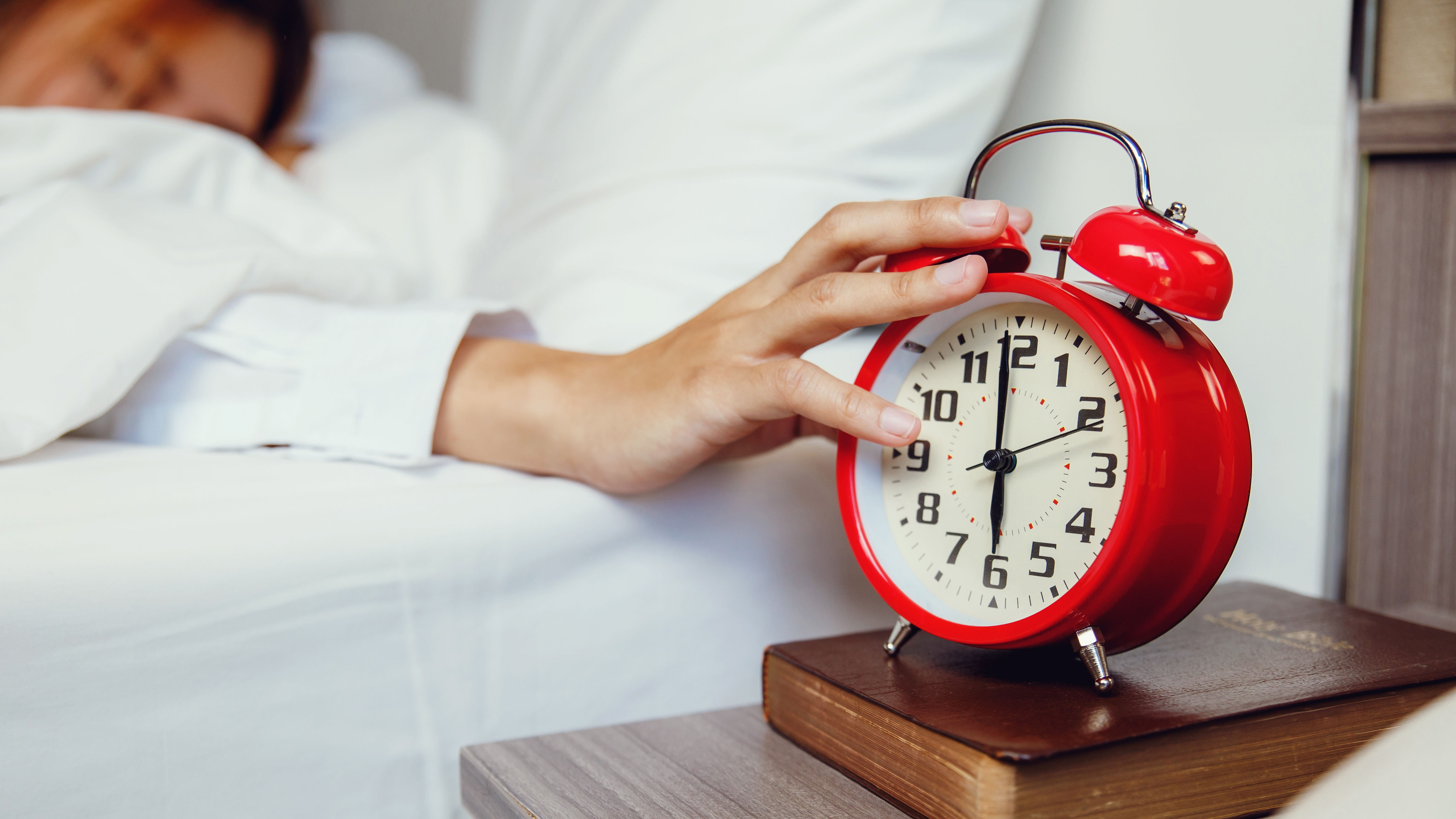7 signs that you’re in sleep debt and don’t even know it
Don’t miss these seven key signs that you’re in sleep deficit

Whether it’s because of a late night, early morning, or a baby that hasn’t quite grasped the difference between night and day, we all know what it’s like to occasionally feel tired. But is it possible that you could be in severe sleep debt and not even know it?
Sleep debt, which is also known as sleep deficit, occurs when you don’t get the amount of sleep your body needs to function optimally. For example, if you require eight hours of sleep in order to feel refreshed but only got six, you are two hours in sleep debt — and you’ll likely feel tired as a result.
However, research indicates that prolonged periods of not getting the sleep we need can alter the way we recognize tiredness. Chronic sleep deprivation describes a period of three months or more of not getting adequate sleep. Identifying tiredness after this point can be trickier, as we have essentially trained our bodies to function on little sleep. Difficulty focusing on a task, poor short term memory and low moods are all signs that you aren’t getting the sleep your brain and body requires to function properly. Let’s take a closer look at the signs you could be in sleep debt and not even know it.
7 signs you could be in sleep debt
1. You have difficulty focusing
Poor cognitive function is a direct consequence of not getting enough sleep. Tasks that you wouldn't ordinarily find difficult may become a struggle, such as maintaining focus, your ability to concentrate and recall information are all hallmarks of not getting adequate sleep.

And it doesn’t end there. Your short term memory, ability to problem solve and apply rational thinking all goes out of the window when you’re operating on low sleep, which can lead to an increase in risk taking behavior. Understandably, this makes functioning within a work or learning setting incredibly difficult. However, the good news is that increasing your sleep will lead to sharper focus and improved memory.
2. Your mood is low
When you’re in sleep debt it’s common to feel a bit irritable. However, sleep deprivation — especially over a long period of time — can worsen feelings of stress, anxiety and depression. Anxiety can affect our sleep, making it difficult to fall and stay asleep, which can worsen feelings of poor mental health.
It can be hard to break this negative cycle, but improving your sleep can help boost your overall emotional wellbeing. A good weighted blanket can help soothe feelings of worry and anxiety and lull you into a deep, restful sleep, so investing in one could be a great place to start if you’re serious about improving your sleep quality.
Get instant access to breaking news, the hottest reviews, great deals and helpful tips.
3. You crave sugary snacks
Craving sweet, salty and starchy snacks is another hallmark of not getting enough sleep. When we’re operating without adequate sleep, our body craves food that will quickly boost its energy levels, like a can of soda or a packet of chips (you can thank the hunger-stimulating hormone ghrelin for that). But these foods will only briefly spike your blood sugar levels before crashing back down.
Not only are these snacks not the quick energy fix your body needs, they can also interfere with the quality of your sleep, which can lead to negative cause and effect cycle. Eating this way can also lead to further health issues down the line, such as weight gain and diabetes. Instead, snack on something that will give you a lift but won’t impact your sleep, like a banana or handful of nuts.
4. You're often unwell
Our immune system is our body’s way of fighting off bugs and viruses in order to keep us healthy. However, our immune system requires adequate sleep in order to function optimally. When we don’t get the sleep we need, our immune system suffers — and so does our health.

Running up sleep debt and suffering from sleep deprivation can lead to a weakened immune system, which means that we can easily become unwell if exposed to a virus. If you find that you’re often coming down with something, think about how much sleep you’re getting — are you really giving your body the sleep it needs to fend off infection and viruses?
5. You fall asleep in front of the TV
We all nod off in front of a film from time to time, but if you find that you fall asleep in front of the TV more often than not, it could be a sign you’re in sleep debt. Changes in the way you sleep, such as craving naps and sleeping in on the weekend, are indications that your sleep needs are not being met.
You might even be having a series of microsleeps, which is when you fall asleep for a matter of seconds while in the middle of a task, like talking, reading — or driving a car. Your eyes may be open, but your brain isn’t taking in any information. Micosleeps occur so fleetingly that you may not even be aware that they’ve happened, but they can have devastating consequences. If you have experienced microsleeps, consider this your warning and start prioritizing quality sleep now.
6. You feel groggy when your alarm goes off
If you have had enough sleep the night before, you should wake up feeling well-rested and refreshed. If you wake up feeling groggy and disoriented, you could be in something called sleep inertia, which is our body’s way of telling us that it hasn’t had enough sleep.

When we are sleep deprived we go into a state of deep sleep called sleep rebound, which is our body and brain’s way of making up for lost sleep. However, when we wake up after sleep rebound, we can suffer from a temporarily lower mental and physical performance — this is sleep inertia. This grogginess can linger for up to two hours, so can easily impact your day. Getting adequate rest is the best way to stave off sleep inertia, but if you need a quick fix to get going try a cold shower or drinking a caffeinated beverage.
7. You fall asleep quickly
You might pride yourself on your ability to fall asleep quickly and almost anywhere, but falling asleep too fast isn’t a sign that you’re a good sleeper — it’s a sign that you could be in sleep debt and your sleep needs are not being met. On average, it should take between five and thirty minutes to fall into a healthy sleep.
If your body and brain craves sleep (because they haven’t received enough of it), you may find that you fall asleep quickly as soon as you give it the opportunity to rest. If you fall asleep as soon as your head hits the pillow, think about how much sleep you’re actually getting — could you be sleep deprived?

Nicola is the Sleep Editor at Tom’s Guide, where she helps steer the mattress and sleep content published on Tom’s Guide, including our Best Mattress for Back Pain buying guide. With a career in journalism spanning the best part of two decades, Nicola brings experience to the team and the knowledge of what makes a great article, whether that’s a how-to mattress cleaning feature, a deep dive into melatonin gummies, or an in-depth mattress review. As a sleep editor, few better understand how important a decent mattress is to the overall quality of our sleep, and precisely how our sleep impacts our physical and mental health. As well as tackling the vast topic of sleep, Nicola joins the raft of expert mattress specialists at Tom’s Guide, who test and compare a wide range of mattresses in order to guide readers towards the very best options on the market.
 Club Benefits
Club Benefits





